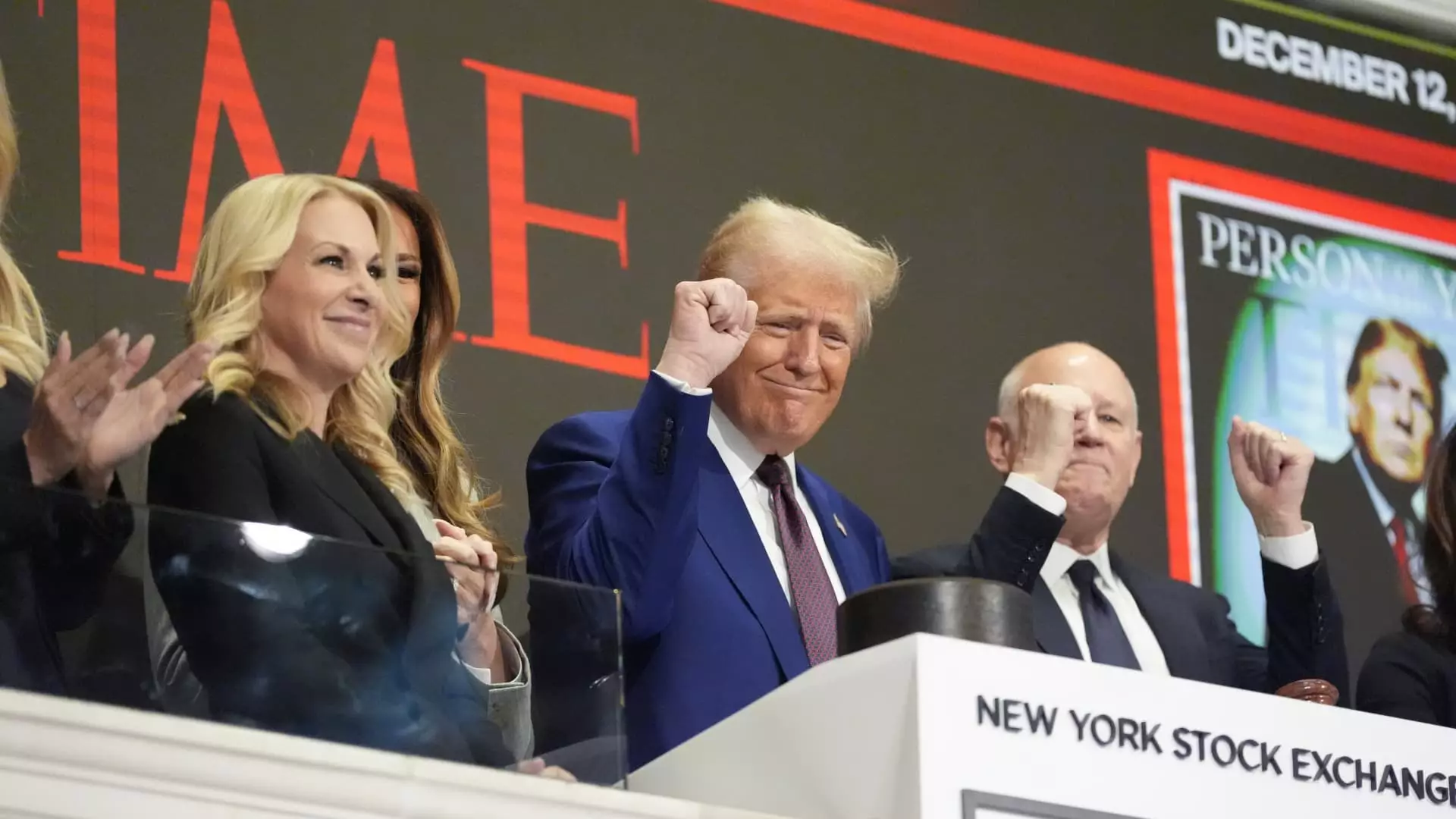On a significant day marked by anticipation and enthusiasm, President-elect Donald Trump made a noteworthy appearance at the New York Stock Exchange (NYSE) where he rang the opening bell. This event was not merely ceremonial; it signaled the dawning of Trump’s economic agenda and the broader mission of his administration. The atmosphere was alive with energy as he addressed an assembly of traders, business leaders, and influencers, promising a ferocious commitment to revitalizing the American economy. The presence of key figures from the financial and corporate sectors, including leaders from Goldman Sachs and Citigroup, underscored the importance of this moment in the landscape of U.S. economic development.
Trump’s remarks were steeped in optimism as he asserted, “We’re going to give tremendous incentive like no other country has.” He emphasized tax reforms aimed at stimulating corporate investments within the United States. Proposing a substantial reduction in the corporate tax rate from the current 21% to 15% for manufacturers that produce domestically showcases his administration’s strategy to entice businesses to keep operations within U.S. borders. Such measures, he claims, will lay groundwork for economic growth and elevate the standard of living for average Americans, also addressing affordability issues, particularly for necessities like groceries.
The president indicated a clear roadmap characterized by drastic tax cuts aimed at corporate giants, a move that some economists view as a double-edged sword. While they might spur business expansion and job creation, there are concerns about their long-term effects on public revenues and social programs. The dichotomy of facilitating growth for businesses while simultaneously grappling with potential budget deficits presents a significant challenge ahead for Trump.
Another cornerstone of Trump’s speech focused on energy policies, particularly the expansion of U.S. oil drilling as a mechanism to combat inflation. He projected a direct correlation between increased domestic oil production and lower prices for consumers. However, this claim has drawn skepticism, especially juxtaposed against the complex dynamics of global oil markets and inflationary pressures that aren’t solely contingent upon local production levels. Trump’s approach attempts to juxtapose environmental concerns with economic imperatives, a balancing act fraught with complications given growing climate change considerations.
The nuanced dialogue concerning energy policy is essential, as it intersects not only with economic growth but also with environmental stewardship. The U.S.’s long-term sustainability goals necessitate strategic thinking that goes beyond immediate fiscal benefits—instead looking at innovative solutions that address climate change, while still bolstering economic resilience.
After the bell-ringing ceremony, Trump made a point to delineate his connections with some of America’s wealthiest and most influential figures. Highlighting meetings with tech giants like Mark Zuckerberg, Elon Musk, and impending discussions with Jeff Bezos, he framed these relationships as vital for the influx of innovative ideas and strategies. Trump’s willingness to engage with both Wall Street and Main Street is a nod to his recognition that a robust economy requires collaboration between major finance entities and everyday businesses.
Scott Bessent, poised to lead the Treasury under Trump’s administration, echoed the sentiment that both sectors could prosper simultaneously, reaffirming compatibility between high finance and average citizens’ welfare. This integrated approach reflects a potential pivot from the sharply diverging fates of Wall Street and Main Street that have characterized recent economic seasons.
While Trump’s proclamations of an impending economic boom resonate with a certain faction of American society, it’s critical to adopt a nuanced view as his administration unfolds. The validity of his proposed policies and their tangible impacts on the economy will soon be put to the test. How Trump balances corporate incentives with social responsibilities—alongside managing inflation and energy dynamics—will be pivotal in determining the legacy of his forthcoming administration. As traders and policymakers tune in to his agenda, the unfolding of this economic narrative will undoubtedly influence the U.S. market trajectory and socio-economic climate for years to come.


Leave a Reply